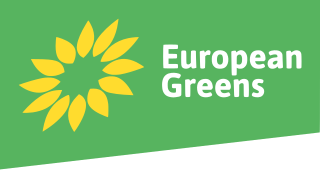
The European Green Party (EGP), also referred to as European Greens, is a transnational, European political party representing national parties from across Europe who share Green values.

Sophia Helena "Sophie" in 't Veld is a Dutch politician. She was elected as a Member of the European Parliament in 2004, and reelected in 2009, 2014 and 2019. She was D66's top candidate for the three elections and has been its leader in the European Parliament since her first election.
Duarte Costa is a Portuguese politician and co-chair of the party Volt Portugal, as well as a climate expert. Costa is his party's top candidate for the 2024 European elections.

The Boeselagerfamily is an old German noble family that originated from Magdeburg.
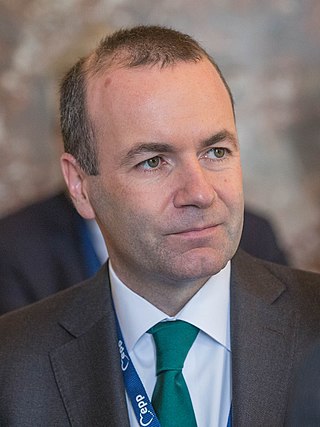
The 2019 European Parliament election was held in the European Union (EU) between 23 and 26 May 2019. It was the ninth parliamentary election since the first direct elections in 1979. A total of 751 Members of the European Parliament (MEPs) were elected to represent more than 512 million people from 28 member states. In February 2018, the European Parliament had voted to decrease the number of MEPs from 751 to 705 if the United Kingdom were to withdraw from the European Union on 29 March 2019. However, the United Kingdom participated alongside other EU member states after an extension of Article 50 to 31 October 2019; therefore, the allocation of seats between the member states and the total number of seats remained as it had been in 2014.

Europe Elects is a poll aggregator that collects and publishes election-related data such as opinion polls in European countries. It is also known for its monthly European Parliament seat projection, which it has been publishing since 2014.

Volt Europa is a pro-European and European federalist political party, which is organized as a pan-European umbrella for subsidiary parties of the same name and branding in all EU member states and several non-EU states, including Albania, Switzerland, Ukraine, and the United Kingdom. Despite its organisation, Volt does not yet meet the requirements to register as a European political party.

The von der Leyen Commission is the current European Commission, in office since 1 December 2019 and is to last until the 2024 elections. It has Ursula von der Leyen as its president and it further consists of one commissioner from each of the member states of the European Union.
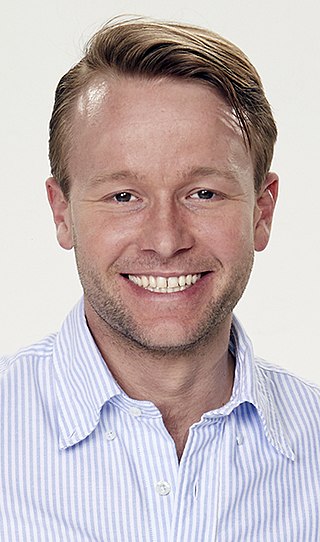
Reinier van Lanschot is a Dutch politician and Volt Netherlands' top candidate for the 2024 European Parliament election. In 2018, he co-founded Volt Netherlands with Laurens Dassen and served as its chairman during the party's first year. He was the party's top candidate for the European Parliament in the 2019 election. Van Lanschot was elected to the co-presidency of Volt Europa at the 2019 General Assembly in Sofia, and re-elected for a second mandate at the 2021 Lisbon General Assembly.
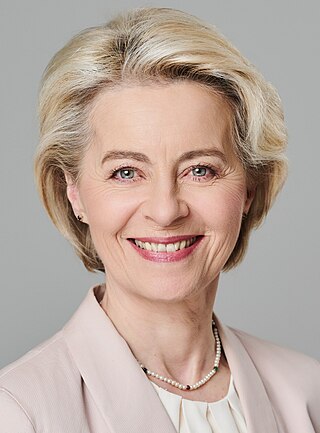
The 2024 European Parliament election was held in the European Union (EU) between 6 and 9 June 2024. It was the tenth parliamentary election since the first direct elections in 1979, and the first European Parliament election after Brexit. A total of 720 Members of the European Parliament (MEPs) were elected to represent more than 450 million people from 27 member states. This election also coincided with a number of other elections in some European Union member states.

Volt Netherlands is a social liberal political party in the Netherlands. It is the Dutch chapter of Volt Europa, a political movement that operates on a European level.
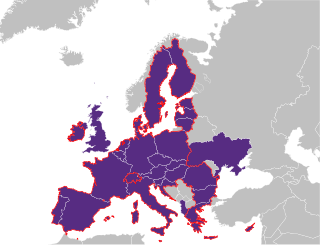
Volt Germany is a social-liberal pro-European, eurofederalist political party in Germany. It is the German branch of Volt Europa, a political movement that operates on a European level.

Volt Luxembourg is a political party in Luxembourg. It is an internal section of Volt Europa and was founded in 2018. It received 2.11% of the vote in the 2019 European elections, which meant that the party did not win a mandate.

Francesca Romana D'Antuono is an Italian politician. In October 2021, she was elected co-president of Volt Europa together with Reinier van Lanschot at the 2021 General Assembly.

Volt Spain is a political party in Spain. It is part of the pan-European party and movement Volt Europa, which advocates for closer European and cross-border cooperation and is characterised by its supranational character. As part of Volt, it has a Member of the European Parliament, Damian Boeselager, who represents the party there.

Volt Austria is a socialliberal political party in Austria and the Austrian chapter of Volt Europa a progressive and Eurofederalist pan-European political party and movement.

Volt Sweden is a political party in Sweden and part of the pan-European party Volt Europa.

Volt Czechia is a social liberal political party in the Czech Republic and the Czech branch of Volt Europa.
Sven Franck is a French politician (Volt) from Germany. From 2021 to 2023 he was co-chair of this party together with Fabiola Conti and was elected top candidate for the 2024 European elections in October 2023.
Rebekka Müller is a German politician (Volt). She was the federal chairwoman of Volt from January 2022 to June 2023. She was also the party's federal lead candidate in the 2021 Bundestag elections and a member of the top quartet in the 2024 European elections.












